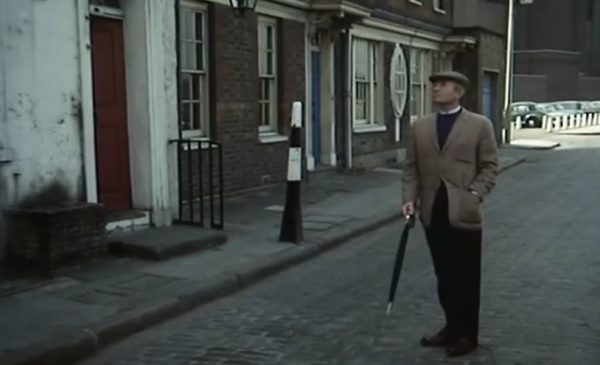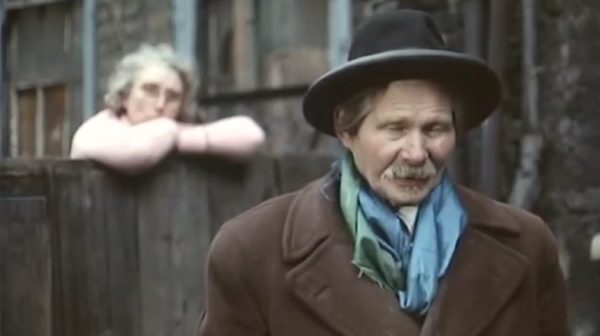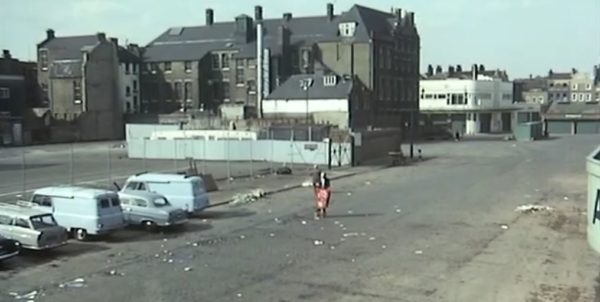It may start with shiny new towers going up in post-war London, but this laconic wander around London digs into the grim underbelly of the city.
Ruined buildings not from war but neglect are the backdrop to James Mason’s tour of The London Nobody Knows, written by Geoffrey Fletcher and based loosely on his own book of the same title.
A theatre offering shelter for pigeons and tramps is mourned for the passing of the joy it once gave, and yet in its decay is a curiously delightful place to see, even as today we would never be able to stand there. Gentrification makes its appearance, as a horse-drawn cart still plies its trade in the streets, and down into the catacombs under Camden.
Alongside James Mason’s mellifluous narration, the documentary jettisons the grand and the big, and focuses on the small and the messy, the nuts and bolts dropped next to railway tracks. The long lost penny model at Broad Street station, the cockney market with a rich exuberance of characters shouting to sell their kitchenware and knock off towels. The pie and mash shops, the egg breakers yard, the fruit and veg markets.
Every face is a portrait of wrinkles and laughter, of people who have lived through war and deprivation.
Don’t miss the Holborn public toilets with the fish swimming in the water tanks, and as he perceptively notes that toilets are the one true democracy, as all men are equal in the eyes of a lavatory attendant. Like most of pre-war London, the fish no longer lived in the tanks, as Mason, with a wave of his brolly admits, they were put back for the film.
As an actor, he comments that there’s not more than a dozen street buskers in 1960s London, which is roughly how many floating Yodas can be found within a metre of every Londoner today.
His opinions of 1960s post-war rebuilding are rightly summed up with a curt “yick!”.
With James Mason’s distinctive voice, it’s a melancholic wander around old London town, from the City and Southwark, digging out long alleys and dark corners. It’s a London that’s still mostly brown and brick, just as the concrete and glass are ready to wrack their effect on the city.
Settle down with a coffee and a biscuit for a 45 minute journey back to a time which is both badly missed, and yet, no one would really want to live through again. The London Nobody Knows (1967) is available to buy here, or to watch online here.












Oddly enough, The London Nobobdy knows came to mind yesterday as we walked through Deptford from St John’s and I thought of Geoffrey Fletcher’s descriptions of Deptford in his chapter “The mysterious east”! Most of Deptford has changed so much, but the thing which is still exactly the same is the market in Douglas Way with piles of stuff laid out on the ground, most of it broken and of no apparent use to anyone.
Fascinating film that. I was able to cast it to my tv to watch it full screen sized. It didn’t cover any of the areas I knew as a kid but I do remember Spitalfields just as it was in the film.
Thanks for that Ian.
This film can be seen free at BFI mediatheque